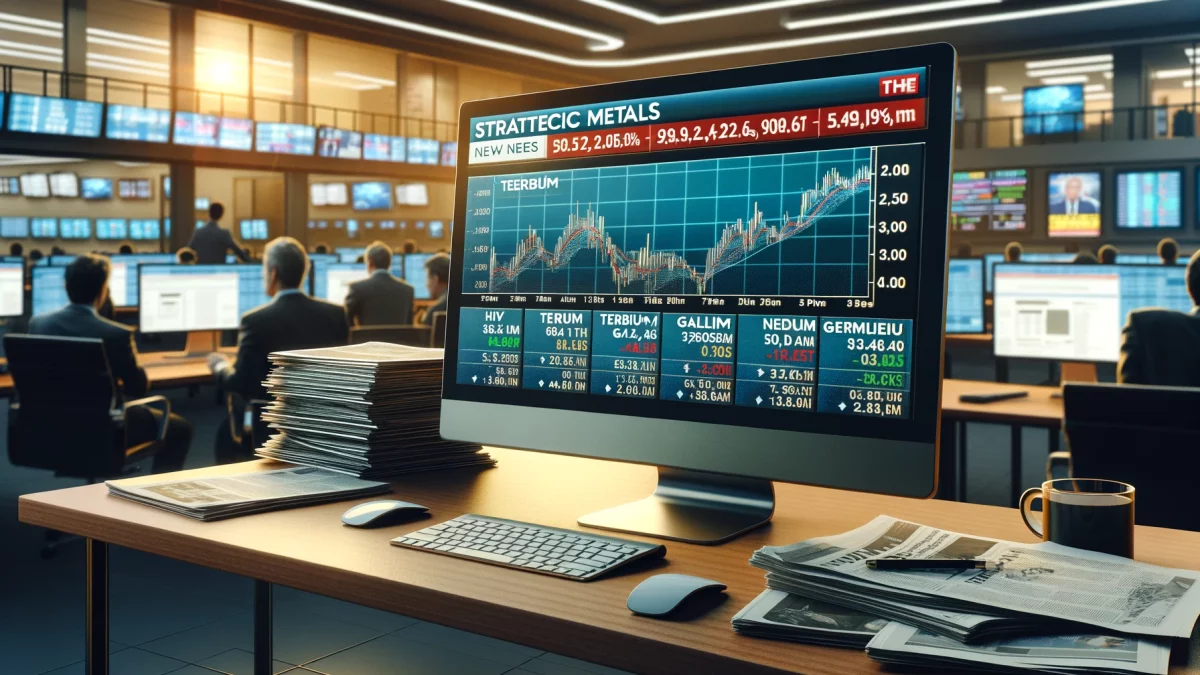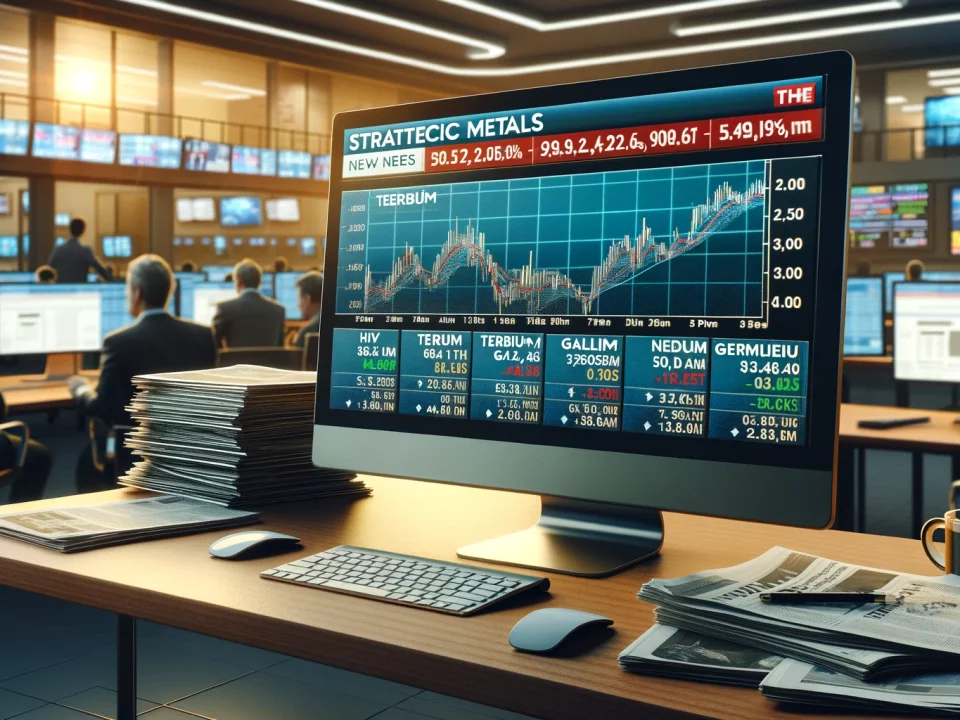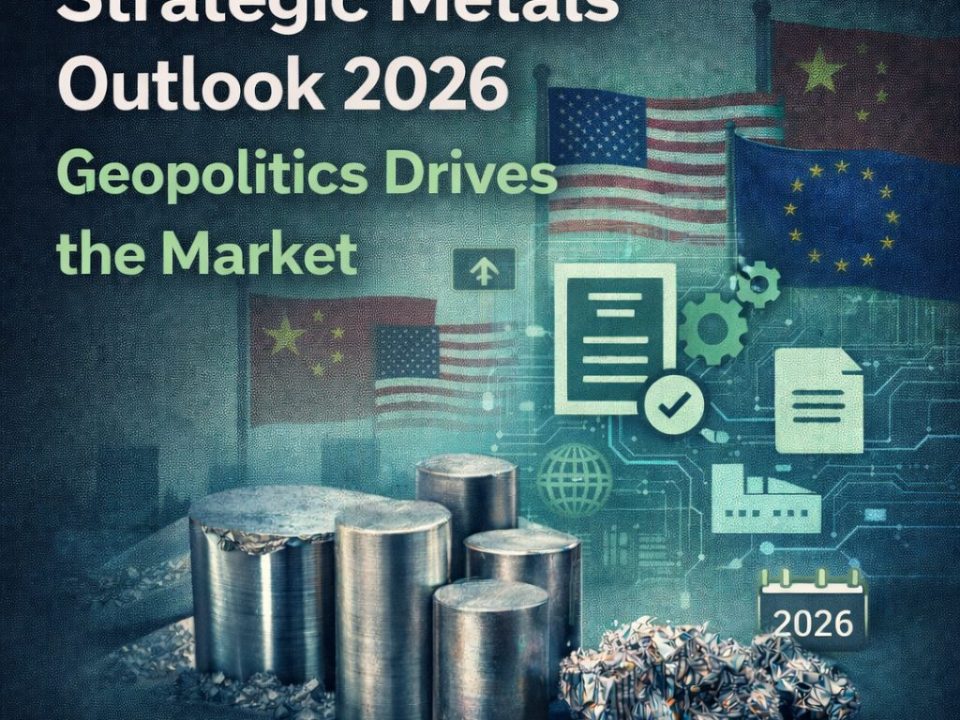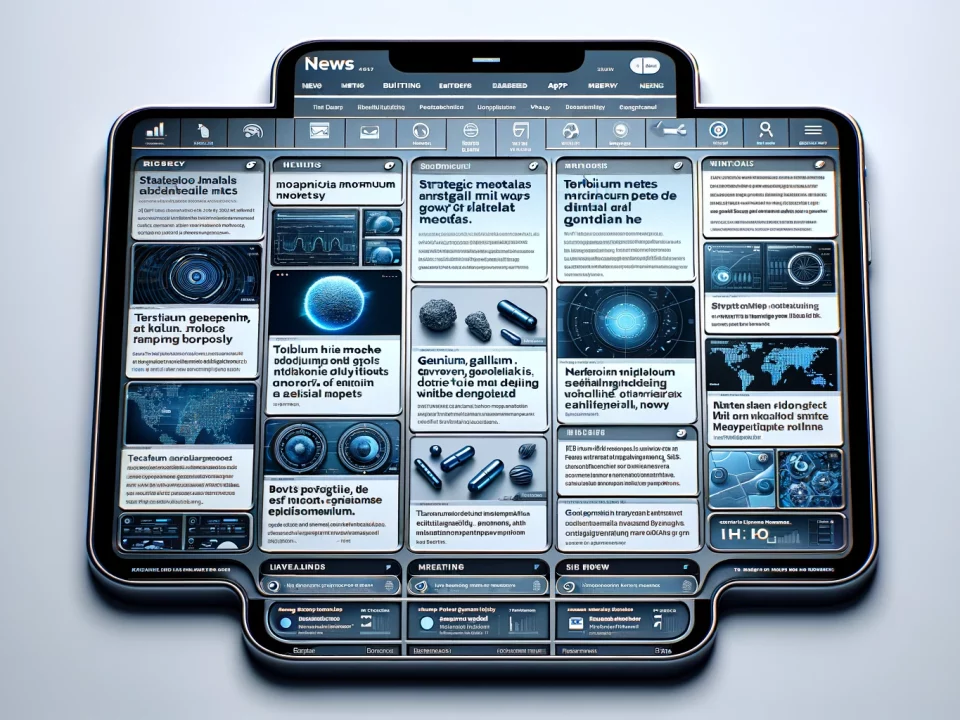
Weekly News Review Feb 5 – Feb 11 2024
February 11, 2024
Weekly News Review Feb 19 – Feb 25 2024
February 25, 2024Welcome to our weekly news review.
US AND EU TO JOIN FORCES ON STRATEGIC METALS SUPPLY CHAINS –
Merger efforts are underway in the Minerals Security Partnership (USA) and the Critical Raw Materials Act (EU).
According to Bloomberg, United States and European Union representatives are in talks to join forces in their attempts to diversify critical minerals supply chains away from industry leader China, citing people familiar with the discussions. In detail, the discussions could merge U.S. efforts under the Minerals Security Partnership (MSP) with European efforts under the Critical Raw Materials Act (CRMA). Bloomberg adds that core to this collaboration is the push to work with resource-rich nations and develop standards on investment, trade, research, and environmental issues.
The EU is already cooperating with the U.S. under the MSP, which seeks to diversify critical minerals supply chains and make them more sustainable by connecting resource-rich nations with member states and directing investments into developing promising projects. This is mirrored by European efforts under the CRMA, which, beyond seeking more European mining and expanding recycling measures, also aims to establish a Critical Raw Materials Club for “all like-minded countries willing to strengthen global supply chains.” Unlike the MSP, which has operated since 2022, the CRMA is still pending final official approval by the Union’s political institutions. After clearing another hurdle in a long-stretching legislative process in December, the CRMA is on the final straight and is expected to be adopted in late March.
The new initiative, known broadly as a “minerals security partnership forum,” would combine these two approaches.
Despite a potential collaboration emerging on supply chains, separate talks on a bilateral critical minerals agreement have not reached a successful conclusion so far. Following a fruitless meeting in Washington in January, European Commission Executive Vice President Valdis Dombrovskis vowed to press on. The next meeting is scheduled for April in Belgium.
ARGENTINA HOSTS US DELEGATION TO DISCUSS STRATEGIC METALS –
Representatives of the Argentinian Chamber of Mining Companies CAEM (for Cámara Argentina de Empresarios Mineros) and mining companies operating in the country hosted a U.S. delegation in Buenos Aires last week. Topics of discussion were, among other things, current developments in the mining industry, critical minerals, and exploring mutually beneficial collaboration, according to a statement by the CAEM. The U.S. delegation, led by Assistant Secretary of State for Western Hemisphere Affairs Brian A. Nichols, also sought to find new investment opportunities in the Latin American country, the U.S. Department of State said in a statement ahead of the meeting.
Argentina could become a significant player in the critical minerals industry, especially in terms of the battery metal lithium, considering it boasts the fourth-largest lithium reserves in the world, according to data from the U.S. Geological Survey (PDF). However, the country’s mining production is overshadowed by competitors like Australia, which had an output almost tenfold the size of Argentina’s in 2023. In an effort to change this, the country has recently begun to push for more international partnerships. Just a week prior, an Argentinian delegation met with German politicians and industry officials in Berlin to discuss collaboration on critical minerals.
WILL THE INTERNATIONAL ENERGY AGENCY (IEA) INTRODUCE MANDATORY STOCKPILING OF STRATEGIC METALS? –
Strategic Metals are becoming increasingly important due to the transition of energy and transportation.
Solar cells and wind turbines are inconceivable without raw materials such as copper or critical minerals such as rare earths. Therefore, the International Energy Agency (IEA) will initiate a program to secure supplies, as its chairman, Fatih Birol, announced in an interview with Reuters. He did not give details on the program’s design, but according to the agency, Birol referred to the mechanism for maintaining the oil supply. IEA member states such as Germany must maintain a 90-day supply within this framework. In the case of Germany, this amounts to around 24 million tons of crude oil.
The IEA was founded in 1974 after the oil crisis and intended to develop measures to avert similar shortages. Today, it advises the 31 member states on energy policy issues, with critical raw materials increasingly coming into focus due to efforts to achieve climate neutrality. The agency presented its first report on this topic in July last year.
COLLABORATION BETWEEN SOUTH KOREA AND EUROPE –
The South Korean cable manufacturer wants to supply neodymium from 2024 and diversify its supply chains with Europe’s leading permanent magnet manufacturer.
Demand for permanent magnets containing rare earths is growing steadily, but China has held a virtual monopoly on producing these components, essential for the transitions in energy and transportation. Now, a possible alternative could develop: The South Korean cable manufacturer LS Cable & System and the German magnet manufacturer Vacuumschmelze (VAC) have announced a joint venture to this effect. This was reported by the newspaper Aju Korea Daily, among others.
Specifically, the subsidiary LS Eco Advanced Material, a producer of copper wires for electric motors in Hyundai and Kia vehicles, has signed a letter of intent with Europe’s market leader for permanent magnets. The aim is to supply 1,000 tons of neodymium magnets annually from 2027, enough for around 500,000 electric cars. According to Aju, only around ten companies outside of China manufacture these high-tech components.
According to Korea IT Times, CEO Lee Sang-ho said that LS Eco Energy will start supplying neodymium this year and is also considering building a factory for rare earth metals in Vietnam. LS Cable recently signed a purchase agreement for rare earths with the Vietnamese mining company Hung Thinh Mineral, starting with 200 tons in the current year. Vietnam has the second-largest rare earth deposits after China and intends to expand its mining and processing activities significantly. VAC is also playing an essential role in establishing its western supply chains and is currently building a plant for rare earth magnets in the U.S. (we reported). It would be only the second factory in the United States.
US GOVERNMENT FUNDS PROJECTS TO EXTRACT STRATEGIC METALS FROM COAL –
The U.S. Department of Energy funds three projects that extract valuable raw materials like rare earths from coal-based sources to strengthen the domestic supply chains of critical minerals. According to a press statement, the Board of Trustees of the University of Illinois at Urbana-Champaign will explore the feasibility of a fully integrated, vertical supply chain for producing select critical minerals from coal-based sources located entirely in Illinois. In addition, the two companies, Winner Water Services and Tetra Tech will build on existing technology to explore the possibility of extracting rare earth elements used in wind turbines and electric vehicles, for example, from by-products of coal production, such as ash and underclay. The projects are funded with a total of $17 million.
Because the U.S. relies on imports for over 80 per cent of its rare earth element demand, looking for domestic sources has moved up the agenda recently. Especially in states with a long coal-mining history, efforts to repurpose old and existing mines have been going on for a while, as the critical minerals could give old and soon-to-close coal mines a second life and bring back jobs to the states that have been lost in the advent of the coal phase-out. For example, a team from West Virginia University led by Dr. Paul Ziemkiewicz has made significant progress in extracting rare earth elements from acidic mine drainage and has received multiple funds to expand the project since. Other projects range from using algae to bacteria to turn mining waste into mining treasure.
AUSTRALIA RAMPS UP EFFORTS TO BUILD INTERNATIONAL STRATEGIC PARTNERSHIPS –
Government opens applications for $25.8 million grant, supporting projects across the entire value chain.
Australia seeks to establish a more significant foothold in the international critical minerals supply chains. To support collaborations, the government has now unveiled a $25.8 million program (AUS$40 million) with applications open for projects across the value chain of critical minerals, from pilot and demonstration plants to the commercialization of technology and building downstream processing capability, according to a statement by resource minister Madeleine King.
King added that the grant is part of last year’s unveiled Critical Minerals Strategy, under which the country plans to become a significant producer of raw materials and processed critical minerals while boosting its economy. Building and deepening international partnerships is a central element of this strategy. High-tech industries such as Japan’s or South Korea’s rely heavily on foreign sources of critical minerals. They are already Australia’s second and third-largest export markets for resources and energy. During a recent trip to the two Asian countries, Minister King discussed investment opportunities in the Australian raw material sector with Japanese and South Korean officials, which could yield mutually beneficial results.
The focus under the Critical Minerals Strategy is not only abroad, however. The domestic sector is also advanced through government investments of almost $3 billion combined into infrastructure, mining projects, and processing facilities. The Australian Nuclear Science and Technology Organization ANSTO has received $9 million (AUS13.9 million) for its minerals unit to accelerate discovering, extracting, and processing rare earth elements from clay-hosted and ionic adsorption rare earth deposits. These deposits are currently only mined in Southern China and neighbouring Myanmar, with infant efforts in Brazil.
HASTINGS MINING (AUSTRALIA) STILL HAS STRATEGIC METALS PROCESSED IN CHINA –
Despite focusing on European raw material supply chains, the Australian mining group signs a contract with Baotou Sky Rock.
Regarding critical minerals, Western countries are striving for a more independent supply from China – but new cooperation agreements with the raw materials giant are still being entered into. This is the case with the Australian mining group Hastings Technology Metals, which has signed a binding purchase agreement (PDF) with the Chinese company Baotou Sky Rock. The aim is to have Baotou process rare earth concentrate from Hastings’ Yangibana project in Western Australia over seven years. The private Chinese company specializes in producing rare earth metals and permanent magnets. It is based just 150 kilometres south of the world’s most important mine for this raw material group, Bayan Obo. Hastings and Baotou had already signed a purchase agreement for rare earths in November 2018, which expired after five years.
According to Hastings, the new agreement is intended to improve the profitability of its Yangibana project. The company’s long-term goal is a “mine-to-magnet” strategy focused on Europe, based on the existing agreement with the European rare earth producer Solvay and the investment in the Canadian mining group Neo Performance. The latter operates a rare earth processing plant in Estonia, where a plant for producing rare earth magnets is also under construction. As we reported, Hastings has also signed an off-take agreement with the German plant and raw materials trader Thyssenkrupp Materials Trading.
That’s our weekly news review for this week.






